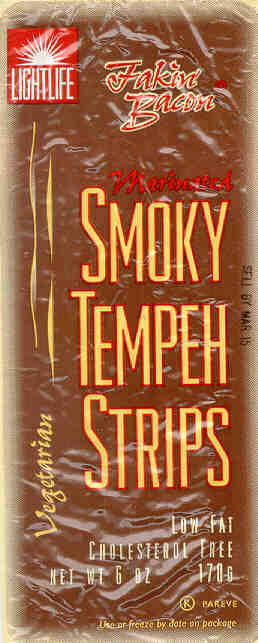 REBEL DIRECTORS CAST HISTORIC FIRST VETO, NIXING VOTE OF GENERAL MEETING
REBEL DIRECTORS CAST HISTORIC FIRST VETO, NIXING VOTE OF GENERAL MEETING
STAFF PUSH FOR BUILDING NEXT DOOR IS SHATTERED
COOP FROZEN IN CONSTITUTIONAL CRISIS
The General Meeting began in the large church always needed when hot coop issues draw crowds. I ate takeout General Tso's, and was asked where I'd bought it. A brother carnivore! If celery sticks were raised against us, we could stand back to back, lobbing missiles of cornstarchy fat and gristle.
Two members started the Open Forum by implying that there was a coordinator (paid staff) conspiracy to pack this meeting for discussing buying the Building Bext Door. One complainer -- who happened to be the partner of Paul, who happened to be a nominally anti-staff member of the board of directors -- objected to a postcard announcing this GM, which had been mailed at coop expense to the previous GM's attendees. The Building Next Door discussion had actually had begun at that last meeting. Then Paul himself noted that GMs were bring promoted to newbies just in time for this major issue. (An impressive 100 members were there that night, many for the first time.) A coordinator retorted that the postcard had been sent only to attendees of the last meeting, for continuity of discussion. Later, a member added that since most of the last meeting's people had seemed against the proposal, a postcard to pack this meeting with such people would have been moronic.
The financial report also angered Paul, who asked why $100,000 owed in a mortgage had been paid off early and without prior approval, since the General Meeting must authorize expenditures over $10,000. Paul has written that such cash was supposed to rebuild the coop's crowded "front end," and that paying down past mortgages makes it insidiously easier for the coordinators to secure future loans, such as for buying buildings next door. The financial coordinator, who had been applauded minutes before when announcing the paydown, said that it was maintenance, not an expenditure, and he was upset by the idea that debt reduction is not vital. Another coordinator agreed, saying refinancing would have been pricey.
I don't know what breakfast cereal Paul had eaten, maybe the coop's popular Stalks 'n' Grubs, but the first agenda item -- electing new members to the Agenda Committee, which plans the GMs -- didn't sit well with him either. He asked candidates if they'd work extra time to eliminate the need for the Agenda Committee's coordinator advisor. He called her role a conflict of interest. In reply, that coordinator was praised as a great source of coop knowledge, more than a paper-shuffler replaceable by extra member labor. Then all nominees were elected.
Then we finally got to that building item! The coordinators introduced the resolution: form a committee to study buying the Building Next Door.
The coordinators had wanted to buy it in 1993 because it would double the coop's size. In 1990 the coop had previously doubled its space by buying the property on the other side. In the before time, members had dragged cardboard boxes along the floor, like Nibelungen dwarves. Since the last expansion we instead roll carts up and down the brightly lit equivalent of a California health-food store, past new, cleanable surfaces and refrigerated bins that chill and spritz the veggies, none of which now need to be ordered in advance. But the 1990 expansion was no utopia. We lost the prized amenity of cheeses cut to order. And the outdated checkout area, a terrible bottleneck at peak shopping times, was never renovated with the rest of the coop. And as thousands more people joined, old systems grew strained, and costs and prices rose with an increase in paid staff. It's crowded now, but not all members want to blow money on expanding again. Some would rather get more bulk and organic items, redesign that tight front end, and hang from meat hooks the growing cadre of coordinators for not being earthy-crunchy enough. When the coordinators had tried to buy the building next door in 1993, a coop-wide referendum voted against it 53% to 44%. Now they wanted to try again.
 Refined since last month's debates, this new proposal was not an imperious demand for lebensraum but a measured proposal to research it, with amendments added as concessions for the antis:
Refined since last month's debates, this new proposal was not an imperious demand for lebensraum but a measured proposal to research it, with amendments added as concessions for the antis:
Not too shabby. Hardly the plan of a oligarchic conspiracy. The presenting coordinator stressed that this was not a resolution to buy the building next door, but just to study that prospect.
Some members said it still sounded like a purchase was inevitable. The coordinators responded by repeating the amendments, and admitted that the 1993 attempt had been badly planned. One said that even if the 1993 referendum had okayed a purchase instead of voting 53% to 44% against it, it would have been too divisive, and that the 3-to-2 majority required for a new referendum would ensure a true mandate. One member was offended by 3-to-2 voting, saying it undemocratically cheapened pro-building members' votes. That amendment was struck by the end of the evening when others also complained.
We weren't growing enough for such a huge expansion, someone said. Sure enough, membership has stagnated, hovering around 5,000, and for the first time in coop history our usual annual loss of 1 out of 4 members does not come from people leaving town, but from people dissatisfied with coop. A coordinator followed up, noting that big health-food stores would soon come to Brooklyn, and that our now crowded space was not competitive.
Then we argued over the cost of cleaning it up: the Building Next Door is now a carpet store. A member who works at the EPA said that cleanup could cost up to $40,000, not the $4,000 estimated by the coordinators. Another member violently challenged her, accusing her of misrepresenting herself as a business-site toxicity expert and not the environmental one she actually is. She admitted being the latter but defended her estimate, but speaking with great dignity. I was awed by her composure, even as she blushed as purply as her sweater.
Some folks wanted the building purchase to be one of many studies of the proposed committee, examining all the problems of the coop, past, present, and future, and possible solutions. But others objected to broadening the mission. Without a concrete goal, it would never get anywhere.
Many opposed to the purchase also opposed even studying it with this committee. In reply, another person demanded to know why putatively democracy-broadening members wanted to censor discussion and study. He testily attacked such members' "hidden agenda of resentment" against the staff, and demanded to know why there was so much passion over the environment next door when the coop's child-care room was already an uncorrected "cesspool of electromagnetic pollution."
The bickering went on. We voted twice to extend the meeting's end time. People grew tired and limp. The last speakers wandered. One, who had just been popularly elected to that Agenda Committee early that evening, began babbling about how we all needed greater understanding and less wrath. She was broadly hissed and shouted into shutting up.
Finally we got to vote, our arms waving yea or nay. The proposal to create the committee passed 55 to 26, with light applause. I would have twisted around to see how possible naysayers felt, but I was too relieved that a resolution had been reached. It was late, and the church had neglected to stock its restrooms with toilet paper. I, and presumably many others, were eager to go home.
There was a huge rumble as people started shuffling, packing. This happens at every meeting. The coordinators always then start yelling that the meeting hasn't ended, that there's still criticism/self-criticism, announcements, and then the formalizing vote of the board of directors, which must by law confirm the "advice received from the members," e.g. the votes of the GM. I always sit through it feeling surly. It's just a formality. Even when the first of the rebel board directors disagreed with a GM vote, he only abstained; and it never happened again. Many people left anyway; I stayed.
The touchy-feely criticisms and self-criticisms were made. One member said that members' professional qualifications should not be challenged on the floor. "Unless she misrepresents herself!" howled the critic of the EPA expert, from the rear. A few people hoped for car rides. No one announced an International Limbless Children's Art Day or like holiday.
Joe, the most senior of the coordinators, called to order the board of directors, on which he too serves. He nattered the usual legalistic preamble, asked the four other directors to identify themselves, and asked if they preferred voting on the two GM resolutions together, or separately. Separately, said another director: a recent preference of opposition directors, but meaningless; everything was always approved. Joe asked how many yeas for the first agenda item, the election of new Agenda Committee members. Five. Motion carried. Holtz asked asked how many yeas for the second agenda item, approving the committee to study buying the building next door.
 Two arms raised.
Two arms raised.
"Opposed?" Joe asked.
Three. The rebel directors Paul, Stewart, and Chandra.
Could it be? I was too shocked. "Shame! Shame!" yelled members. "For those who don't understand," shouted a coordinator, "the committee does not exist! They voted it down!" The members who had stayed for the directors' vote, jacketed for going out, instead moved in twisted knots across the big room, conversation an anguished roar. "This forwards the democracy they advocate!" sneered a member. "Fascists!" "Fascists!" I lost track of Paul. Stewart remained seated, impassive, as a couple of coordinators stood over him and screamed in turn. A sullen Chandra was being yelled at by members, and she dabbed at a tear in her eye. The chairs shouted for people to clear the room for cleanup of, among other things, chairs, and people argued into the hall, through the lobby, and out the door, where people left in groups and another coordinator stomped up and down the sidewalk, visibly seething, audibly snarling.
"This is ridiculous! Completely out of order!" whined a member still seated inside as lingerers raged. The whiner sat alone, but surely enjoyed sharing the first taste of power of the rebel director traitors to the General Meeting. For he was correct. There was nothing to be done.
![]() Next dispatch.
Next dispatch.
![]() Previous dispatch.
Previous dispatch.
![]() Back to list of dispatches.
Back to list of dispatches.